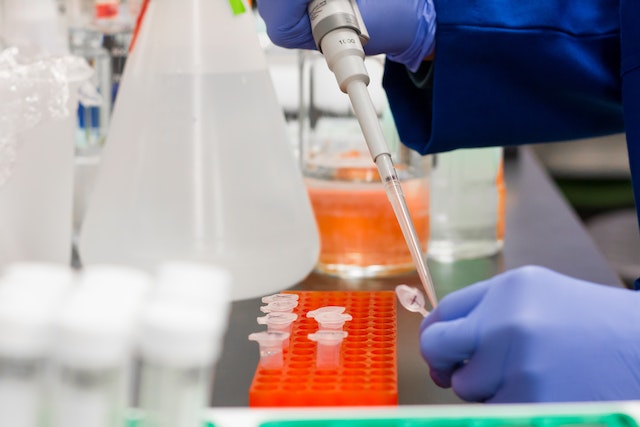The IB Biology Internal Assessment is a key component of the IB Biology curriculum, providing students with the opportunity to conduct independent research and develop their skills in data collection, analysis, and scientific writing.
While many students may be accustomed to conducting lab experiments as part of their biology studies, it is also possible to complete an IB Biology Internal Assessment without conducting a lab experiment.
This article presents a list of 10 potential IB Biology Internal Assessment topics that do not require a lab experiment.
This article covers a range of areas, including the impact of diet and social media use on health, the role of genetics in the development of diseases, and the effects of climate change on species distribution and abundance, all for IB Biology Internal Assessment.
IB Bio IA topics without experiment
- The effect of volume and pH of carbonated drinks on the dental erosion or decay of tooth:
This topic involves the study of the effects of different volumes and pH levels of carbonated drinks on the erosion or decay of teeth. An IB student could conduct an experiment to test the effects of different volumes and pH levels of carbonated drinks on teeth and analyze the results to determine the impact on dental health.
- The effect of different types of light on the growth of plants:
This topic involves the study of the effects of different types of light on the growth of plants, including the intensity and wavelength of the light. An IB student could conduct an experiment to test the effects of different types of light on the growth of plants and analyze the results to determine the optimal conditions for plant growth.
- The effect of different temperatures on the rate of enzyme-catalyzed reactions:
This topic involves the study of the effects of temperature on the rate of enzyme-catalyzed reactions, which are essential for many biological processes. An IB student could conduct an experiment to test the effect of different temperatures on the rate of an enzyme-catalyzed reaction and analyze the results to determine the optimal temperature for the reaction.
- The effect of different concentrations of a chemical on the rate of a chemical reaction:
This topic involves the study of the effects of different concentrations of a chemical on the rate of a chemical reaction, which can be influenced by the availability of reactants. An IB student could conduct an experiment to test the effect of different concentrations of a chemical on the rate of a chemical reaction and analyze the results to determine the optimal concentration for the reaction.
- The effect of different pH levels on the growth of bacteria:
This topic involves the study of the effects of different pH levels on the growth of bacteria, which can be influenced by the acidity or basicity of their environment. An IB student could conduct an experiment to test the effect of different pH levels on the growth of bacteria and analyze the results to determine the optimal pH for bacterial growth.
- The effect of different concentrations of oxygen on the respiration rate of yeast:
This topic involves the study of the effects of different concentrations of oxygen on the respiration rate of yeast, which is an important process for the production of energy in cells. An IB student could conduct an experiment to test the effect of different concentrations of oxygen on the respiration rate of yeast and analyze the results to determine the optimal oxygen concentration for respiration.
- The effect of different types of fertilizers on the growth of plants:
This topic involves the study of the effects of different types of fertilizers on the growth of plants, including the nutrient content and pH of the fertilizers. An IB student could conduct an experiment to test the effect of different types of fertilizers on the growth of plants and analyze the results to determine the optimal fertilizers for plant growth.
- The effect of different levels of salt on the germination of seeds:
This topics for IB Biology Internal Assessment involves the study of the effects of different levels of salt on the germination of seeds, which is the process by which a plant sprouts from a seed. A student could conduct an experiment for IB Biology Internal Assessment to test the effect of different levels of salt on the germination of seeds and analyze the results to determine the optimal conditions for seed germination.
Now it’s your turn to select the right topic
There are a wide variety of topics for IB Biology Internal Assessment that can be explored without requiring a lab experiment as well as IB Math IA topics. These IB IA Bilogy topics cover a range of areas, including the impact of diet, social media use, and pollution on health. Also the role of genetics and epigenetics in the development of diseases and behavior.
Some other articles that will help with choosing a topic for:
- 25+ IB Chemistry IA Topics and How to Complete Them
- IB IA Topics for Environmental Science
- Physics IB IA Topic Ideas
- IA Business Topics
- IB History IA Topics | 21st Century Ideas Included
- IB Internal Assessment Biology topics that require experiment
Another part are mentioned and the effects of climate change on the distribution and abundance of species. All of these IB IA Biology topics offer opportunities for students to research and explore important scientific questions, develop their understanding of the biological processes at work in the world around them.
Don’t forget to check our list of History IA topics as well. And do not forget that you can always count on us in case you need assistance with any type of Internal Assessment. IBWritingServicice.com is at your service 24/7.




